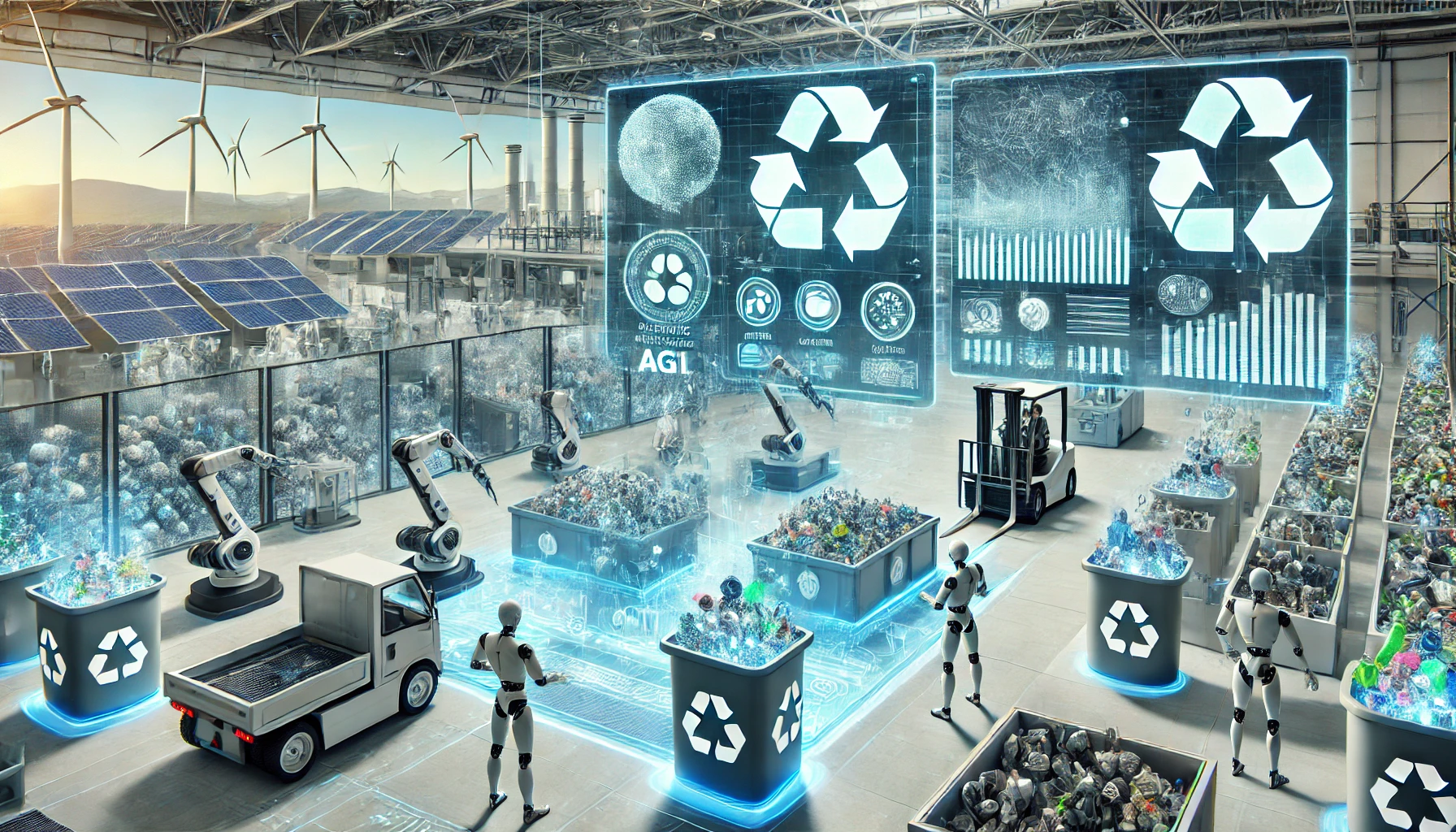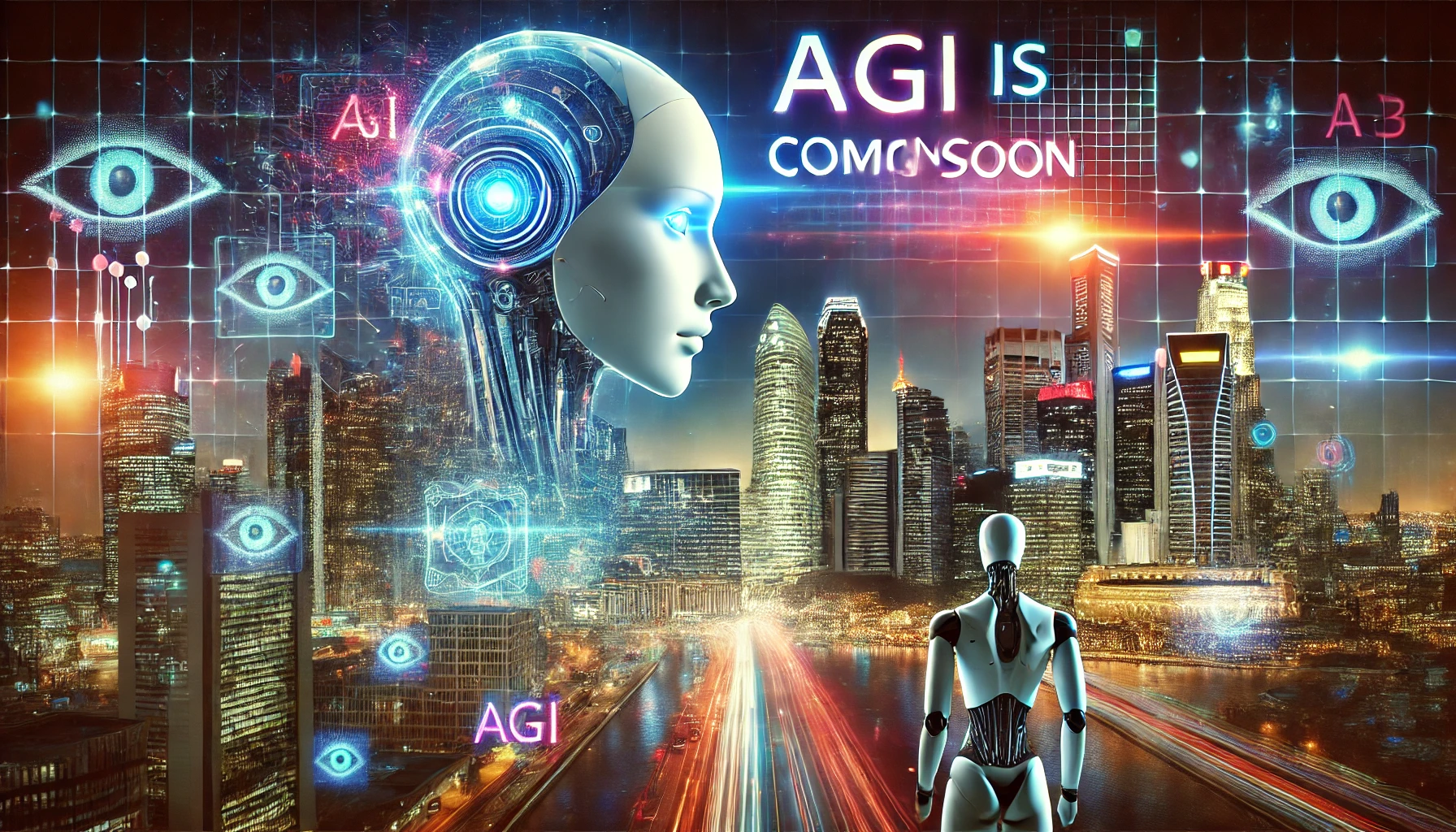As global waste management becomes increasingly complex, Artificial General Intelligence (AGI) offers a transformative potential to revolutionize recycling technologies. By leveraging the advanced capabilities of AGI, industries can optimize resource recovery, reduce environmental harm, and move closer to achieving a circular economy.
Challenges in Recycling Today
Modern recycling systems face several challenges, including:
- Material complexity: New products often use composite materials, making separation and recycling difficult.
- Contamination: Non-recyclable materials mixed with recyclables can degrade the quality of recovered materials.
- Inefficiency: Many facilities still rely on outdated sorting and processing techniques, leading to resource loss.
- Economic viability: Recycling certain materials remains cost-prohibitive compared to producing new materials.
How AGI Can Help
AGI, with its ability to understand and process complex systems, could introduce groundbreaking solutions to these challenges:
- Enhanced Material Detection
AGI-powered systems can identify materials with unmatched precision using advanced computer vision and spectroscopy techniques. This allows facilities to efficiently sort materials such as plastics, metals, and composites. - Optimized Sorting Algorithms
Traditional AI struggles to adapt to new materials or changes in waste streams. AGI, with its general learning capabilities, could continuously evolve sorting algorithms based on real-time data and global best practices. - Predictive Maintenance for Equipment
Recycling facilities often experience downtime due to equipment failure. AGI could monitor machinery in real time, predicting failures before they occur and ensuring uninterrupted operations. - Development of New Recycling Techniques
AGI could contribute to the development of innovative processes, such as chemical recycling for plastics or advanced metallurgy for rare metals, making the recycling of traditionally “non-recyclable” materials feasible. - Behavioral Insights and Public Education
AGI can analyze global waste trends to design targeted public education campaigns, encouraging better recycling behaviors and reducing contamination in the recycling stream.
Real-World Applications
- Smart Recycling Bins
Imagine AGI-powered bins capable of identifying and separating recyclable materials on the spot, providing instant feedback to users about proper disposal. - Waste-to-Resource Facilities
AGI can manage entire facilities, transforming waste streams into valuable resources through optimized processing and energy recovery. - Dynamic Policy Recommendations
Governments could use AGI insights to craft data-driven recycling policies tailored to local needs, improving recycling rates and reducing landfill dependency.
Future Prospects
The integration of AGI into recycling technologies is not just a dream; it’s becoming a necessity. As the world grapples with growing waste challenges, AGI offers the intelligence and adaptability needed to build a sustainable future.
By embracing AGI-driven recycling innovations, we can not only protect our planet but also turn waste into an economic opportunity. The era of smarter, more efficient recycling is on the horizon—and AGI will lead the way.
What do you think about using AGI for a cleaner, greener future? Share your thoughts! 🌍♻️
[SEO optimized]


